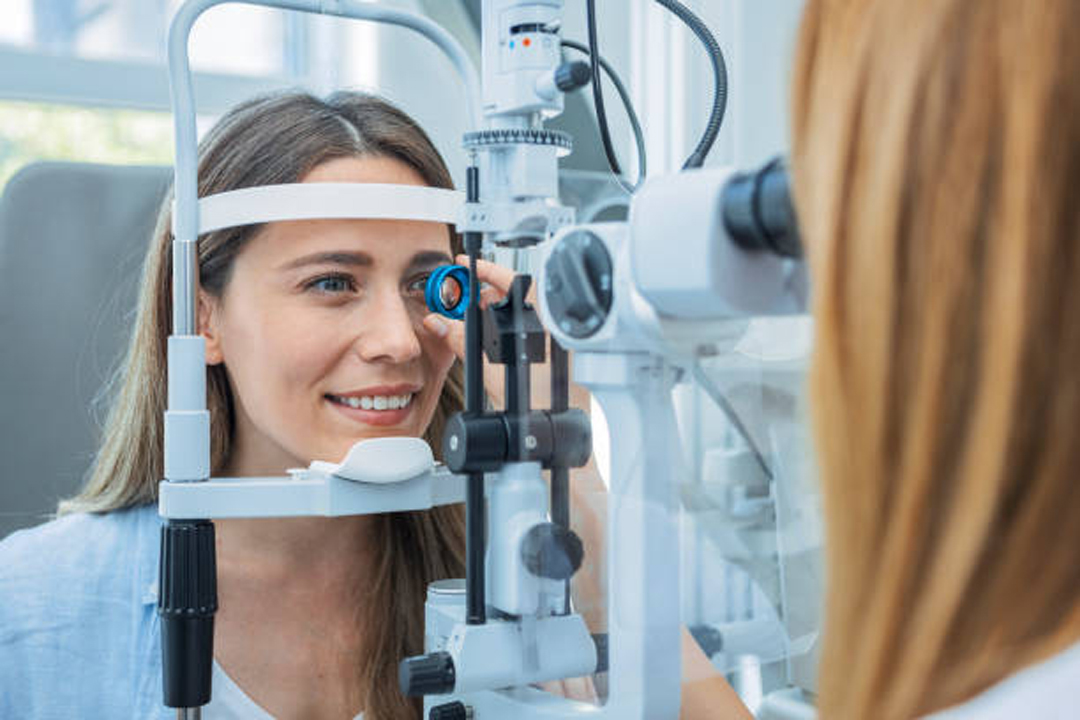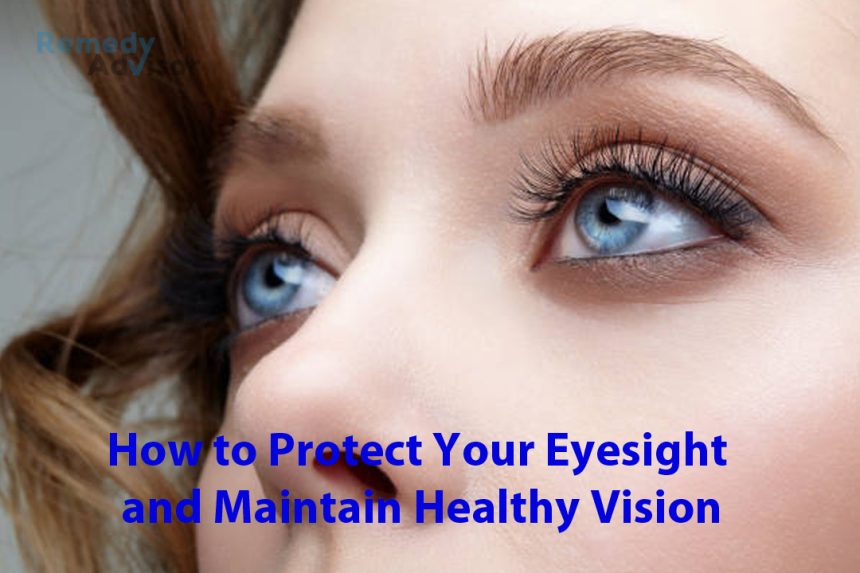It is important to be mindful of the potential for germs to grow in eye makeup, such as mascara, which could lead to eye infections. Health experts suggest changing eye makeup every three months and using your sense of smell to detect any foul odor, just like food that has gone bad. Consuming foods high in zeaxanthin and lutein, such as egg yolks, carrots, squash, kale, and spinach, can help prevent age-related macular degeneration, which is the primary cause of blindness in older individuals.
Encouraging children to play outdoors can help prevent nearsightedness or myopia, as natural light and exposure to more of the world can benefit their eyesight. Glaucoma is a serious eye disease that can lead to blindness, and it is recommended to get a glaucoma test every two years if you are over 40, closely related to someone with glaucoma, have short-sightedness, or are diabetic of African-Caribbean origin. Regular eye exams and working closely with a doctor can help detect and treat glaucoma early to maintain eyesight.
Smell your eye makeup
Have you ever thought about the chance that germs could be hiding in your eye makeup, like mascara? The problem is that bacteria can grow in these goods, which could cause eye infections. Experts in health say that you should change your eye makeup every three months to reduce the chance of it getting dirty. Even though it may be annoying to throw away half-used makeup, it is important to do so to keep your eyes healthy. You can also follow the Mayo Clinic’s advice and use your sense of smell to tell if your makeup have gone bad. Mascara that has gone bad will smell bad, just like food that has gone bad. By treating your makeup like food that goes bad and keeping an eye on when they expire, you can help protect your eye health and avoid infections.
Eat meals with sunny colors
Adding a splash of yellow or orange to your dinner plate could help protect your eyesight as you get older. Egg yolks and many orange or yellow vegetables, like carrots and squash, are high in zeaxanthin and lutein. These are two important nutrients that can help prevent age-related macular degeneration (AMD), which is the top cause of blindness in older people. In fact, experts at the University of Wisconsin have found that people in their 50s who regularly eat foods with these yellow pigments are less likely to get AMD. These helpful nutrients are also found in dark green veggies like kale, cabbage, spinach, and broccoli. By eating these bright, nutrient-dense foods, you can improve your eye health and lower your risk of getting AMD as you get older.
Send the kids outside
Many Western families spend a lot of time indoors, which could have an unexpectedly bad effect on their children’s eyesight by making them more likely to be nearsighted or myopic. Scientists at Cambridge University in the UK looked at studies in this area and found that kids today don’t spend enough time outside, where they can get natural light and see more of the world. When kids play outside often, it can help them see farther and expose them to more UV light, which is good for their eyes. In fact, studies have shown that the chance of myopia goes down by 2% for every hour a child spends outside on a regular basis. Parents can help their kids’ eyes stay healthy and lower the chance that they will get nearsighted by making outdoor time a priority and encouraging them to play outside.
Take a glaucoma exam

If you are worried about your eye health, you should talk to your doctor about getting a glaucoma test. This serious eye disease is one of the most common reasons why people go blind. It is caused by high pressure inside the eye. Early diagnosis is important if you want to keep your eyesight, because eye drops you get on prescription can help avoid damage to the optic nerve that would have happened anyway. By working closely with your doctor and getting regular eye exams, you can help catch any signs of glaucoma early and take steps to treat it well, which will help you keep your eyesight for years to come. The International Glaucoma Association recommends testing at least every two years if you are:
- Over 40
- Closely related to someone with glaucoma
- Short sighted
- Diabetic of African-Caribbean origin.
Taka a rest
Eye doctors in California say that spending a lot of time in front of a screen in artificial light can make you more likely to become nearsighted. To lower your risk, you should take regular breaks from the screen and walk around the office to give your eyes and legs a workout. If you can, try to switch up your tasks at work so you don’t spend too much time in front of a screen at once. Also, try to get out of the office for lunch so that you can get some fresh air and natural light. By putting eye health first and taking steps to reduce screen time and increase physical activity during the workday, you can help lower your chance of short-sightedness and improve your overall health and well-being.
Don’t tell the children
If you’ve ever warned your kids about the risks of watching TV too close, you might be surprised to discover that this practice doesn’t actually harm their eyes in the long run. The eyes can become momentarily fatigued or stressed from sitting too close to a screen, which makes it difficult to concentrate until the eyes have had time to rest, but there is no long-term damage. Despite this, it’s still crucial to put your child’s eye health first by promoting outdoor playtime rather than extended screen time, regardless of how far the child is from the screen. You can support your child’s general health and well-being, including their eye health, by encouraging a healthy, active lifestyle that includes lots of time spent outside.
Wear eye protection
Even if you always wear goggles in the pool to protect your eyes from the chlorine, it’s important to think about other cases where your eyes could be in danger. Small things, like dust or splinters, can be especially dangerous to your eyesight if they get into them and cause corneal abrasions. The American Academy of Ophthalmology says that having protective eyewear could prevent up to 90% of all eye injuries. It’s important to protect your eyes when you’re riding, doing home improvement projects (especially ones that involve sanding and sawing), and even gardening, since bamboo canes, twigs, and thorns can all hurt your eyes. By making an effort to wear protective eyewear during these activities, you can help avoid eye injuries and keep your vision for years to come.
Walk for 40 minutes
If you have glaucoma or are at a high risk of getting it (for example, if a close relative has been diagnosed), staying physically fit can help you deal with your symptoms. Over 20 years of study has shown that people with glaucoma who walked quickly for 40 minutes, four times a week, were able to lower their intraocular pressure enough to stop taking medication for the condition. By making exercise a regular part of your life, you can help improve your eye health and maybe even lower the amount of medicine you need. But you should talk to your doctor before starting a new exercise plan, especially if you already have an eye problem. With the help of your doctor, you can make an exercise plan that is safe and good for your eyes and general health.
Keep clear of smoke

Everyone knows that smoking is bad for your health as a whole, but it’s important to remember that it can also hurt your eyesight. Researchers have found a strong link between smoking and age-related macular degeneration (AMD), which is one of the main reasons why older people go blind. In fact, there is now as much proof that smoking causes AMD as that it causes lung cancer. Studies have shown that people who smoke cigarettes are up to four times more likely to go blind from AMD than people who don’t smoke. Also, this risk can last for up to ten years after a person stops smoking. This shows how important it is to quit smoking as soon as possible to protect your eye health. By deciding not to smoke, you can help lower your chance of AMD and other serious health problems, which is good for your health and well-being as a whole.
Cool your foot
It’s important to pay attention to the direction of the vents in your car’s air conditioning system to protect your eyes and avoid pain or even sores. If you move the vents so that cool air goes to your feet instead of your eyes, the dry air won’t make your eyes feel dry. This is important not only in cars, but also in planes, trains, coaches, and businesses that use air conditioning. Remember that even a small change in the direction of the vents can make a big difference in how well your eyes are protected. So take a moment to look at where you’re sitting and make any changes you need to make to keep your eyes healthy and comfy.
Consume fish for moist eyes
Recent scientific study has shown that eating oily fish can help keep dry eye syndrome from happening. This condition is more common in older people and can make your eyes feel uncomfortable by making them red, itchy, and a little bit painful. This is because your eyes aren’t making enough tears or they are drying out too quickly. Researchers at Harvard University looked at the diets of thousands of women and found that those who ate the least oily fish and, as a result, had lower amounts of omega-3 fatty acids were more likely to get dry eye syndrome.
If you don’t like eating oily fish, study shows that supplements can give you the same health benefits as fresh fish. So, adding omega-3 fatty acids to your diet is a simple and effective way to avoid dry eye syndrome and improve eye health.
Get wraparound protection
Wraparound sunglasses are the best way to protect your eyes from UV rays when it’s sunny, and new research shows that they may also be good for your eyes when it’s cloudy. Experts don’t fully understand how this protection works, but they think that wearing these sunglasses can protect your eyes from wind and smog, which can dry out your eyes. By wearing full sunglasses every day, you can protect your eyes from many things in the environment and keep your vision clear and healthy. Don’t wait until it’s sunny out to wear your sunglasses. For the best eye health, wear them every day. The Mayo Clinic offers the following tips when choosing sunglasses:
- UV protection: Choose glasses that offer 99-100 percent UV protection.
- Polarized lenses: While these are useful for reducing glare, make sure that they also offer the eyes UV protection.
- Lens size: Opt for large lenses, which exclude the most light. Wraparound styles are the best.
Lower the screen
Because you spend too much time at your computer, do your eyes feel dry? There is an easy way to lessen the chance that you will feel bad. Try putting your computer screen just below where your eyes are. This small change can make it easier for your eyes to close a little while you work, which can help keep your eyes from drying out and stop fluid from evaporating. By making this small change to the way you set up your work, you can protect your eyes and keep yourself comfortable all day. Try it out and see how it affects the health of your eyes.







